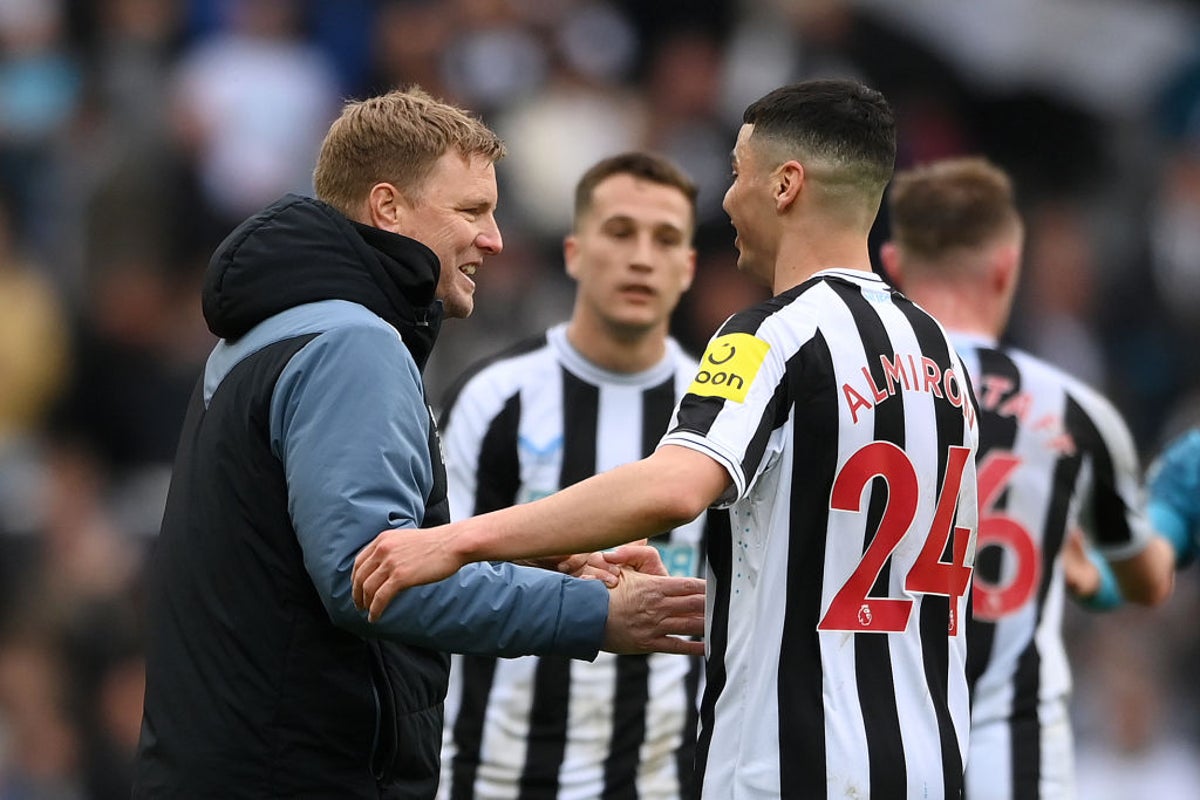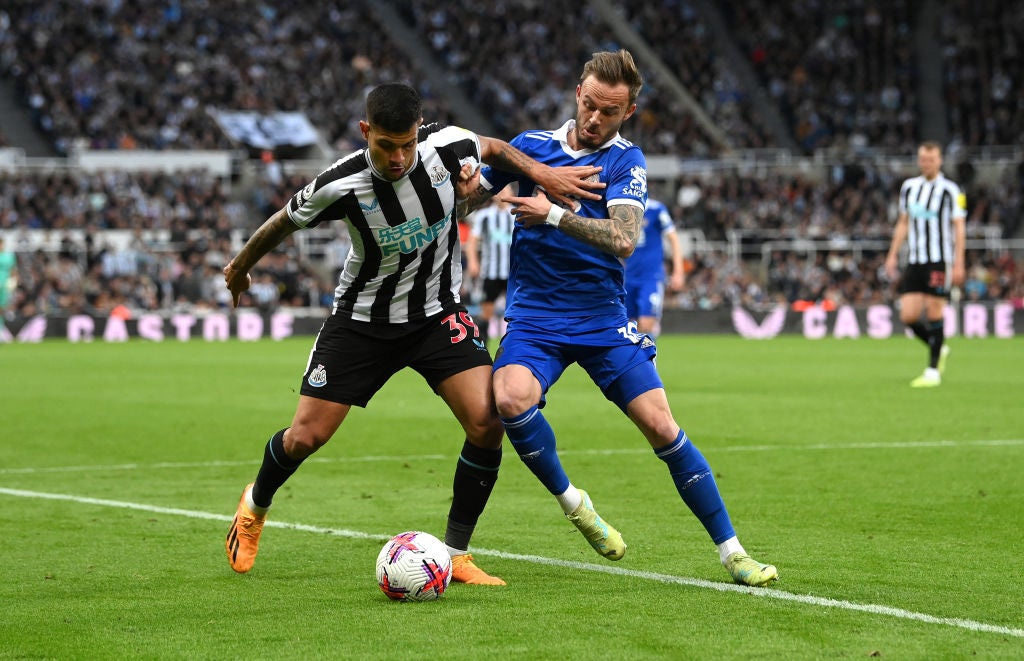
Eddie Howe was not expecting much of a reception when he got back home after becoming the first manager since Sir Bobby Robson to steer Newcastle United into the Champions League. “The dog probably won’t even get up and give me a wag,” he said. “He will probably be asleep on the sofa.”
But Howe has a smiling tendency to downplay and deflect. He had claimed he would celebrate the 6-1 demolition of Tottenham with a tea and a biscuit. Securing a top-four finish, he said, might prompt something slightly stronger. “I hope it is not with a tea and biscuit,” he said. It has been Howe’s way not to mention the Champions League; he claimed it had just “crept up on us” and that he had only started to think about it seriously in the last few weeks. Which, if true, would make Howe the exception at St James’ Park.
He nevertheless sounded like a man who had started his planning, albeit with a typical willingness to moderate expectations. Champions League revenue could provide a £100m boost to Newcastle’s income; not money their owners need, given the wealth of the Saudi Public Investment Fund, but essential for the club, considering the way Financial Fair Play regulations limit their room for manoeuvre. “We don’t have the ability to spend the money people think we have,” Howe insisted.
A voice of caution made a couple of pertinent points. Firstly, Newcastle do not want to lose the unity and spirit that has propelled them beyond more talented teams. To put it another way, they don’t want to do a Chelsea.
And secondly, the better the side has got, the fewer the number of players who can actually improve it. Of those who can, Newcastle are likely to ignore established superstars. So far, they have not raided any of their new rivals: they have not bought from the Premier League’s big six – a term they may have rendered outdated – while instead purchasing from Burnley, Aston Villa, Brighton and Everton and, with the arguable exception of Kieran Trippier from Atletico Madrid, they have recruited from Europe’s second tier: Real Sociedad, Lyon and Lille. The sense is the plan might not change; it can just be accelerated.
“We have been really good in the three transfer windows,” said Howe. There was no need for false modesty; they have. Perhaps they have more ambitious targets now: then again, ambition was always apparent, whether taking Trippier to a club in the relegation zone, a few months after winning La Liga. Even without Champions League football, their persuasive powers were apparent: Bruno Guimaraes was an Arsenal target, Sven Botman wanted by AC Milan.
More such targeted recruitment seems on the cards. “We will be adding to the squad but it won’t be huge numbers,” said Howe. Two targets look particularly attainable. Kieran Tierney would be their first recruit from the big six, but even then a player who has lost his place in Arsenal’s strongest side. Dan Burn has been an endearing emblem of Newcastle’s progress but a great overachiever is not actually a great left-back.
James Maddison was wanted on Tyneside last summer; with Leicester’s possible relegation and the England international’s contract expiring in 2024, they are dual reasons why he could be available. He would offer something different, an injection of creativity into a hard-running team and a player whose goals and assist numbers are excellent.

This summer may bring a search for a right-footed Botman, a right-sided centre-back of similar capability; well as Fabian Schar has done, it could be a position where Howe looks to upgrade.
There is also scope for midfield reinforcements. The question of whether Guimaraes plays exclusively as the deepest of the trio or as one of the No 8s may dictate if Newcastle go for a more defensive presence. Certainly, there are a host of different types of midfielders who look like Howe-type players and are likely to be on the market: Moises Caicedo, James Ward-Prowse, Conor Gallagher and Mason Mount look cases in point.
It will be instructive if Newcastle were to enter the race for Mount, given the high calibre of his suitors.
Part of Howe’s task is to balance loyalty with ruthlessness, to assess how many of those who had the season of their life this season are capable of repeating the feat or will regress to a lower level: Burn, Schar, Miguel Almiron, Jacob Murphy, Sean Longstaff and Joe Willock all belong in that category. Some will surely spend more time on the bench.
Another issue is whether Newcastle can play such an exhausting style of play with a far more crowded fixture list: to use Dean Smith’s word, they have “steamrollered” opponents this season but with the aid of freshness, cohesion and continuity.
But Howe has scarcely rotated and only 14 players have made more than five league starts this season.

It is an illustration of why he feels he has a small squad, especially after the January sales of Chris Wood and Jonjo Shelvey. The summer may see an exodus of some of the unused, of some of Ryan Fraser, Matt Ritchie, Jamal Lewis, Jamaal Lascelles, Isaac Hayden and Javi Manquillo, all part of his inheritance. Maybe Allan Saint-Maximin, too, the crowd-pleaser who does not fit Howe’s high-pressing ethos.
Each represents the old Newcastle. The newer Newcastle is taking shape in Howe’s image and at a speed he did not forecast. The worrying element for their newer peers is their status as a Champions League club gives them more pulling power and a bigger budget.







